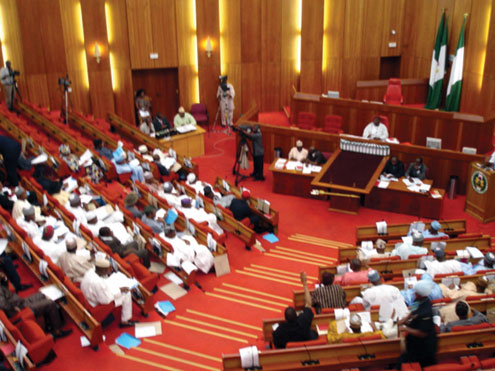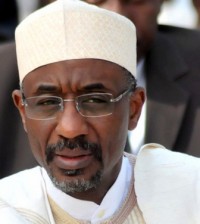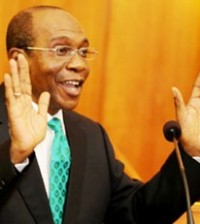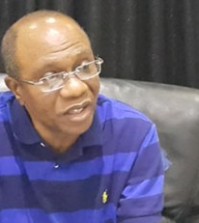Interest Rate: Increase’ll Cause Manufacturers Intense Pain – OPS
The Organised Private Sector (OPS) have said the increase in interest rate from 6.5 percent to 7.5 percent by the Central Bank of Nigeria (CBN) would cause manufacturers and industrialists intense pain.
Responding to the development, the Managing Director of Neimeth Pharmaceuticals and Chairman of the Nigerian Economic Summit Group (NESG) Mazi Sam Ohuabunwa said operators within the economy expected an increase in rates but not by the massive 100 basis points announced by the CBN.
“We understand the need to raise the rates but an increase of 100 basis points is rather steep. From the industrial point of view, it will push up the lending rates of the banks and when this happens it is usually great pain for us as manufacturers,” Ohuabunwa said.
The OPS boss said the new policy will cause manufacturers and industrialist serious pain because it has a ripple effect on the cost of production across the entire value chain leading to a further spike in the already ballooned cost of production in the country.
Ohuabunwa however stated that as the Chairman of NESG and considering the step taken by the CBN from the macroeconomic point of view, the intention of the apex bank is understandable.
“As Chairman of the Nigerian Economic Summit Group and looking at the issue from the macroeconomic point of view, I appreciate the intense pressure on the CBN to tame the spiralling inflation”
Ohuabunwa explained that unfortunately the rates increase will cause a significant increase in the cost of money and everybody in the chain will be affected.
He noted however that this may be the inevitable price, which producers in the economy will have to pay for macroeconomic stability.
Also speaking on the issue, the President of the Abuja Chamber of Commerce and Industry Mines and Agriculture Barrister Dele Oye blamed the riotous spending of politicians on their the campaigns and last minute efforts by political office holders to conclude projects in order to impress the electorate and win their votes for the massive increase in inflation, which has necessitated the action of the CBN.
He however stated that a milder action from the CBN would have been more desirable for manufacturers, industrialists and other producers in the economy.
He added that the sharp jump from 6.5 percent to 7.5 percent will take a huge toll on the cost of production of consumer goods and significantly decimate the margins projections of operators of the private sector.
Director General of Manufacturers Association of Nigeria (MAN) Mr Jide Mike said although the move by CBN will affect manufacturers in the country significantly, it is certainly not as bad as what used to be the case in the past when interest rates were as high as 30 percent and over.
He said manufacturers will adjust themselves to the new development and try to hibernate until situations improve and hopefully the rates are again adjusted down words to make things easier for manufacturers.
However, BGL said , the implication of the hike in interest rate may be minimal on inflation which is its prime target considering the structural nature of consumer price drivers.
A report from the firm argued that stable exchange rate does not guarantee protection against imported inflation as global food and commodities prices continue to rise, especially for an import dependent nation like Nigeria. BGL predicted that retail lending rates may remain inelastic to MPR dynamics considering the sluggish credit channels in the country.
It added: “Government fiscal excesses may not be immediately controllable to support moderation in aggregate expenditure. In addition, the second round effect of rising price -higher wage demand and input price increase- is not a monetary issue.
“The money market rates are expected to increase to a level above the Standing Lending Facility Rate of 9.5 per cent as the floor immediately. Deposit rates are also expected to remain low, especially with the extension of the guaranty on interbank transactions. Bond market value will drop further as yield rallies upward. Sustained positive real return on Bond, provided inflation moderates further or stay constant, implies impressive bargain in the bond market going forward.”
BGL warned the regulators to be cautious of the level of tightening so as to avoid the point where it could do more damage to the economy than good.
It however predicted that the demand pressure on the exchange rate would ease in response to the higher returns on hold position on the Naira, which the high MPR implies.
“Since a higher MPR also implies real exchange rate devaluation, substantial portion of the overvaluation in the Naira should have been taken care of. Generally, higher rates and by extension increased bond market yield in the short to medium term portend significant return for position in bonds than in the equities market. Hence, while the recently released and expected impressive banking sector results may support an upsurge in the equities market performance, it may not be sustainable in the long run,” BGL said.
On his part, the Managing Director and Chief Executive Officer, CRC Credit Bureau Limited, Mr. Tunde Popoola, said that the increase in the benchmark rate implies that cost of funds would jump adding that it would also affect the level of borrowing .
“When you look at the average lending rate in Nigeria, it is ordinarily far above the 7.5 per cent. It would further impact on it. I think the adjustment is just in reaction to the inflation rate and other parameters that drive interest rate in the economy,” he added.
Meanwhile, despite the increase in the MPR, demand for equities remained high at the stock market yesterday as the NSE All-Share Index rose by 1.2 per cent. Ordinarily, an increase in money market rates, which will result from the increase in the MPR ought to attract some investments from the capital market.
But some operators in the capital market also said that the latest increase in the MPR would have a minimal impact on the stock market, explaining that is why demand for equities remained high.
For instance, a senior stockbroker and Managing Director of Signet Investments Limited, Mr. Dipo Aina said that whatever impact it will have on the stock market will would be temporary.
According to him, more investors would have their focus on the stock market now because of the corporate actions being expected from companies and as a result, migrating to the fixed income securities because of the hike in the rate may not be very profitable for now.
“People tend to move from the stock market whenever there is an increase in the interest rates. But that move will be temporary because the CBN took the action as a pre-emptive move to check the inflationary pressure expected from the elections spending,” Aina said.
Speaking in the same vein, the President of Chartered Institute of Stockbrokers (CIS), Mr. Mike Itegboje said the development would not have any significant impact on the market for now.
“There is no lending to the capital market by banks for now, so I do not see any way it will affect the market in that aspect. On the side of investors migrating, I equally do not see much of that trend because there many investment opportunities in the stock market that would fetch investors higher returns than when they take their money elsewhere for now,” he said.
Source : Thisday








